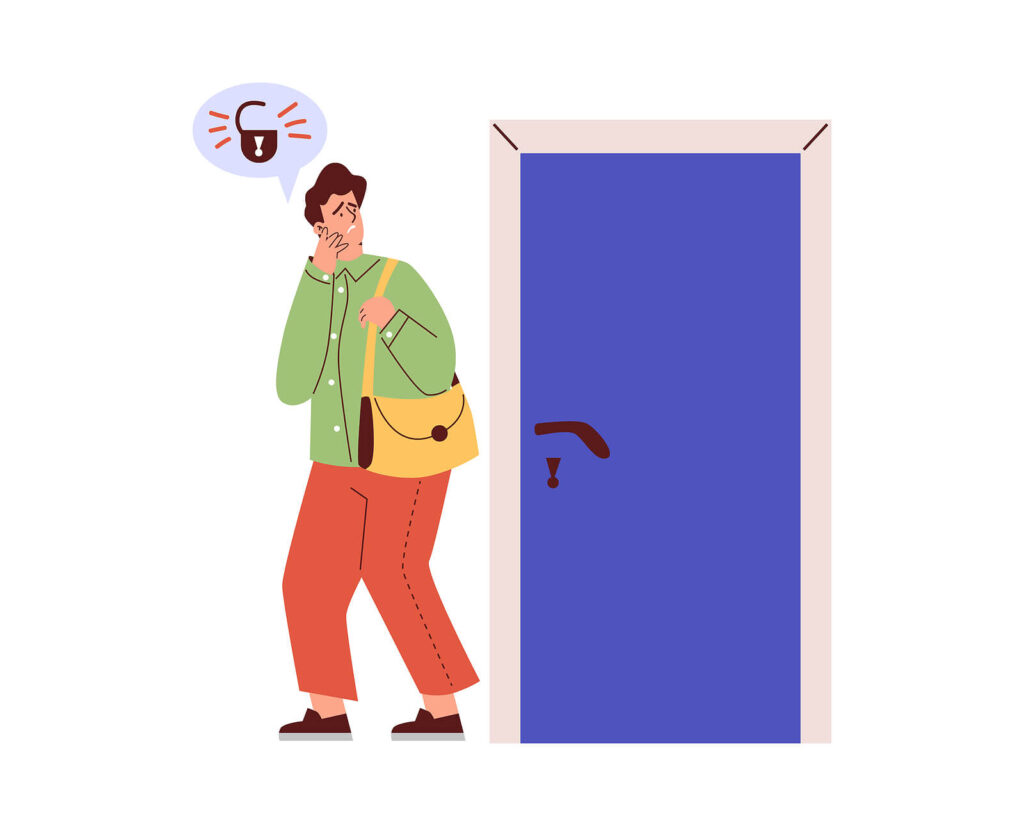We’ve all seen the stereotypical sitcom, GIF, or TikTok that sensationalizes Obsessive Compulsive Disorder. The person who locks the doors a bunch of times, won’t drink out of someone else’s cup or has to have their clothing organized just right. “I’m so OCD about this,” is a common phrase.
But what actually is Obsessive Compulsive Disorder? Do you know the signs and symptoms to watch out for? OCD is more than a buzzword.

Obsessive Compulsive Disorder (OCD) affects 1 in 40 people, or about 2% of the population according to the National Institute of Mental Health. OCD is a chronic disorder that can affect children, teens, and adults. It is characterized by recurring thoughts (“obsessions”) and behaviors (“compulsions”) that an individual feels compelled to repeat over and over to relieve the discomfort of the reoccurring thoughts.
Remember, seeking help is a proactive step toward managing OCD and improving your quality of life. You’re not alone, and there are effective treatments available to help you navigate this condition. Let’s dig a little deeper into Obsessive Compulsive Disorder. At The Family Therapy Clinic, we offer OCD Therapy to help you get the support you deserve.
What are Obsessions?

Obsessions are unwanted, intrusive thoughts, images, or urges that trigger intensely distressing feelings. They are outside of the person’s control and occur over and over again. People with OCD do not want to have these thoughts and find them deeply distressing. Obsessions are typically accompanied by feelings such as fear, disgust, uncertainty, doubt, and the feeling that something has to be done in an exact, certain way. Obsessions are time-consuming and interfere with the individual’s daily life and relationships. Most people will have unwanted or intrusive thoughts from time to time. The difference in individuals with OCD is that these thoughts come frequently and trigger extreme anxiety that interferes with their daily functioning. (Source: International OCD Foundation)
Common obsessions may include (source: NIMH)
- Fear of germs/contamination
- Unwanted, forbidden thoughts about sex, religion, or harm
- Aggressive thoughts towards self or others
- Having things symmetrical or in a certain order
What Are Compulsions?
Compulsions are repetitive behaviors that a person does in order to decrease the discomfort they are feeling from the obsessions. For people with OCD, compulsions are not pleasurable. Most people with OCD would rather not engage in these behaviors, but they engage in them because they believe they will prevent bad things from happening or will reduce the distress of the obsessions. If you or someone you know might have OCD, it may be time to reach out to an ERP therapist. Our American Fork, UT practice has dedicated ERP therapists to support your journey! (Source: International OCD Foundation)

Common obsessions may include (source: NIMH)
- Excessive cleaning or hand washing
- Arranging things in a particular way
- Repeatedly checking on things (ie: checking to see if the door is locked)
- Compulsive counting
- Cancelling or “undoing” a word or action
Not all intrusive thoughts or compulsions will qualify as Obsessive Compulsive Disorder, but generally someone with OCD
- Can’t control his/her thoughts even when they are recognized as excessive
- Spends at least one hour per day on these thoughts/behaviors
- Does not get pleasure from the thoughts or behaviors
- Experiences significant problems in their daily life as a result
A diagnosis of OCD involves the presence of obsessions and/or compulsions that are time-consuming, cause significant distress, and impair one’s ability to function in daily life. It’s crucial to consult a mental health professional for an accurate assessment and diagnosis if you suspect you or someone you know may have OCD. Treatment options, including therapy and, in some cases, medication, can greatly assist in managing these symptoms.
Begin OCD & ERP Therapy in American Fork, UT Today
If you suspect you or a loved one might have OCD, contact our OCD therapists in American Fork, UT. Obsessive Compulsive Disorder does not go away on its own. Fortunately, there is OCD treatment in American Fork, UT that can help. A licensed therapist with training in Exposure and Response Prevention (ERP) can help. The Family Therapy Clinic offers ERP therapy in American Fork, UT as well! You are not alone, and you do not have to continue to suffer.
- Contact us so we can hear more about you and your story.
- Begin ERP Therapy in American Fork, UT.
- Allow yourself to experience a sense of relief as the stress fades away from your life.
Other Counseling Services Our ERP Therapists Offer in American Fork, UT
OCD Therapy isn’t the only service we provide at our American Fork, UT practice. We understand that life can be complicated and you may be dealing with multiple things. Our OCD specialists provide services tailored to your unique needs. Our specialties include adult anxiety, adult depression, teen anxiety & depression, and post-divorce therapy.

+ show Comments
- Hide Comments
add a comment